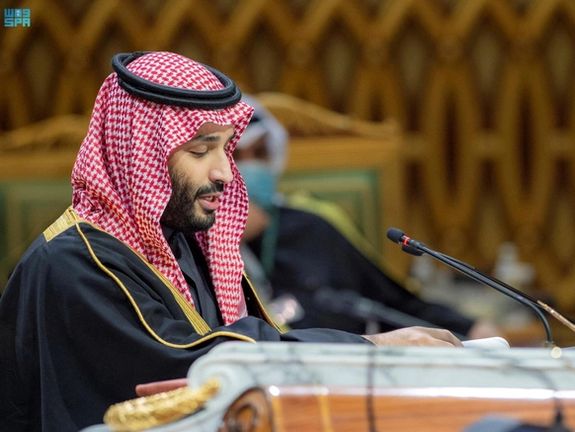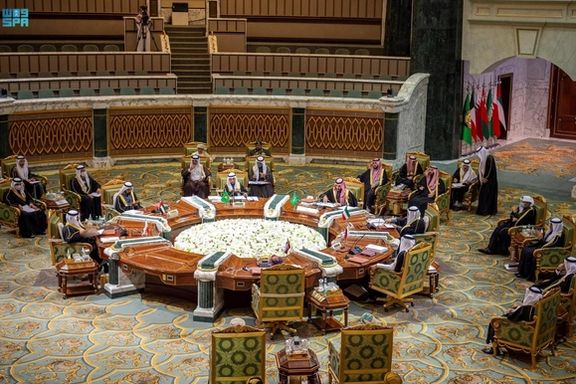Riyadh Warns Gulf Summit About Iran's Nuclear, Missile Programs

Saudi Arabia has told a Gulf Arab summit on Tuesday Iran’s nuclear and missile programs should be handled "seriously and effectively" amid nuclear talks with Tehran.
Saudi Crown Prince Mohammed bin Salman, speaking before a closed session of the Gulf Cooperation Council (GCC) summit, also said Riyadh, which has launched its own direct talks with Iran, supported resolving conflict through dialogue.
After a few rounds of talks earlier this year, there have been no new meetings between Riyadh and Tehran. Saudi officials have said that talks so far have been exploratory. Riyadh's UN envoy Abdallah Al-Mouallimi told Saudi newspaper Arab News in a video interview published on Monday that no major results had been achieved. He said Tehran was so far biding its time and playing "games" in the discussions.
Closing remarks read by GCC Secretary General Nayef al-Hajraf stressed the importance of joint efforts by Gulf states to face threats and to avoid regional and international conflicts.
"Member states of the (GCC) consider that any attack on any of them is an attack on them all, and any danger that threatens one of them is threatening them all," he said.

Saudi Arabia and non-Gulf Egypt have restored diplomatic ties with Qatar but the United Arab Emirates and Bahrain have yet to do so, though Abu Dhabi has moved to mend fences.
"There are areas that will need some time, but... practical, functional (Gulf) cooperation is back on track," senior UAE official Anwar Gargash said last week.
Prince Mohammed had visited Gulf states ahead of the summit in a tour aimed at highlighting solidarity as global powers seek to revive a nuclear pact with Iran, amid deepening Gulf uncertainty about the US role in the region.
Riyadh and Abu Dhabi, concerned about Iran's nuclear ambitions, missile program and regional proxies, are engaging with Tehran to contain tension.
Iran's new, hardline president has said his foreign policy priority would be improving ties with Gulf neighbors.
But nuclear talks in Vienna aimed at restoring the 2015 nuclear agreement between Iran and world powers face uncertainty, while Iran is enriching more uranium and getting closer to a nuclear breakout point.
Hajraf told Saudi TV ahead of the summit that Iran should "offer indications of good intent".
Saudi Arabia and the UAE have moved away from hawkish foreign policies that saw them wade into Yemen and lead the boycott of Qatar, to a more conciliatory approach as they vie to lure foreign investment and win over US President Joe Biden.
Abu Dhabi has moved faster to improve ties with Iran and Turkey while also re-engaging with Syria after forging relations with Israel last year.
Reporting by Reuters